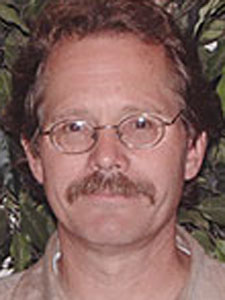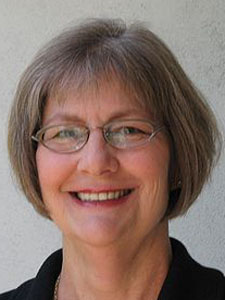UCSD Alums Discuss Future of STEM Education at 'Celebrating 50 Years of Science' Event
San Diego, Calif., March 24, 2011 — As part of a year-long celebration to commemorate the University of California, San Diego’s 50th anniversary, a panel of distinguished UC San Diego alumni led a public discussion this week on the future of education in science, technology, engineering and mathematics, also known as STEM education.
Titled “Celebrating 50 Years of Science” and held Tuesday evening, the free event drew about 150 attendees to the Atkinson Hall auditorium at the UCSD division of the California Institute for Telecommunications and Information Technology (Calit2). Mark Thiemens, dean of Physical Sciences at UC San Diego, moderated the panel, which included five speakers with a wide variety of experience in scientific research, engineering for the private sector, educational outreach and local politics.
|
“When we talk about STEM education, what we’re really talking about is the emerging workforce,” said panelist Sandra Slivka, director of the Southern California Biotechnology Center at Miramar College and a PhD in physiology and pharmacology. “The question is, how do you make sure there’s a workforce for an industry that’s important to a region?”
STEM education is of particular importance to San Diego, which is home to several major biotechnology, pharmaceutical and technology companies, many of which were founded by UCSD alumni. San Diego also boasts numerous health care and life sciences institutes as well as research institutions like UC San Diego. In November of 2009, President Obama stressed the importance of STEM education on a national scale when he introduced his "Educate to Innovate" Campaign, an effort to help reach the administration’s goal of moving American students from the middle to the top of the pack in science and math achievement over the next decade.
To bring the point home about the importance of STEM education, James Rohr, a Ph.D. engineer and education outreach coordinator at Space and Naval Warfare Command Systems Command (SPAWAR) noted that the average age of his colleagues at SPAWAR is 46.
“The average age of scientists when man was first put on the moon was 26,” he pointed out. “We certainly see the need for STEM professionals increasing exponentially.”
“There’s no doubt about the absolute necessity of STEM education,” added Dr. Tony Yang, an assistant professor in residence with the Child and Adolescent Psychiatry Division in the Department of Psychiatry at the UCSD School of Medicine. “But a broad education in other subjects like music is important for learning in science and math. Studies show that a good sense of rhythm in young children is a predictor for increased development in regions of the brain associated with solving mathematics.”
Yang also stressed the importance of critical thinking, focus and concentration for students pursuing careers in STEM fields. He said that when he was involved in the grant funding process at the National Institute of Mental Health, successful grant applications were those that demonstrated that the principal investigator “had thought deeply about a problem.”
“But with wireless and handheld technologies available to them at all times, students keep telling me they can’t focus on their work. There are actually UCSD students who look for rooms at the library that are Wi-Fi free, so they won’t be distracted by the Internet while they’re studying,” he remarked, adding that adequate nutrition, cardiovascular health and "downtime" are also important for optimum brain function and, ultimately, academic success.
|
Lawrence Woolf, a Ph.D. physicist at General Atomics and president and chairman of the board of the General Atomics Sciences Education Foundation, recommended that industry engage with the K-12 educational system by mentoring students, participating in science fairs and developing educational materials, among other outreach activities. But he also emphasized that the K-12 curricula must evolve to encourage more students to pursue higher education in STEM.
“Most students in K-12 are not ever exposed to something like engineering, so I’m always surprised when a student decides to major in it,” he said, adding that his own daughter lost interest in biology while in ninth grade because “it was non-stop memorization.”
“Memorization is not really a useful skill, and solving well-defined problems is useful but limited,” he noted, referring to the way most STEM courses are currently taught in K-12 schools. “We in industry need to provide more guidance for what students should learn and be able to do once they graduate. Industry knowledge needs to start feeding back into education.
“We also need a population — including politicians — who can made informed decisions based on evidence and reason,” Woolf concluded.
Panelist Sherri Lightner, who has served as a City Council member for San Diego’s District 1 since December 2008, is also a member of the Executive Committee for the San Diego Science Festival and is actively involved with the First Robotics Competition, a national competition that combines the excitement of sport with the rigors of science and technology.
“Studies have shown that students involved with First Robotics are 10 times more likely than other students to have a STEM apprenticeship in college and twice as likely to be involved in their communities,” she said. “An investment in STEM programs like this one would be time and money — and I emphasize money — well spent.”
“Celebrating 50 Years of Science” was hosted by the UCSD Alumni Association and was held in conjunction with the San Diego Science Festival, the largest celebration of science and engineering on the West Coast. Now in its third year, the annual festival is a collaborative community effort to inspire students of all ages to excel in STEM education and careers. The week-long festival culminates in an Expo that takes place this Saturday, March 26, at San Diego's Petco Park. For more details visit the San Diego Science Festival website.
Related Links
Media Contacts
Tiffany Fox, (858) 246-0353, tfox@ucsd.edu


